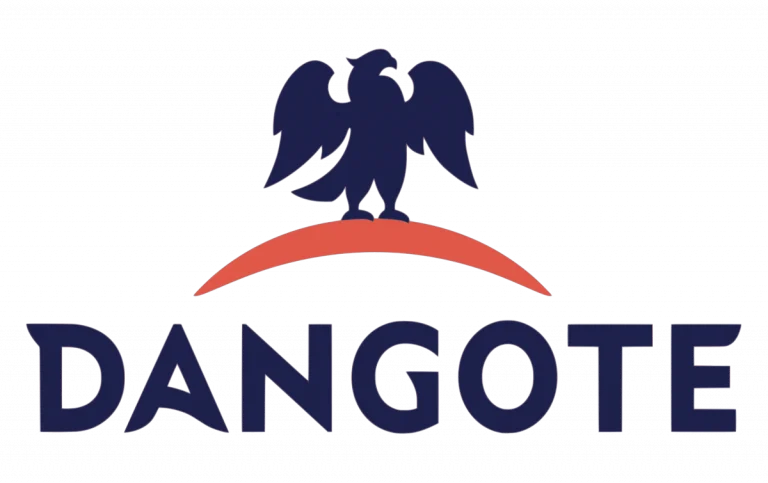Business
FG Gives Traders One Month To Crash Prices

The Federal Competition and Consumer Protection Commission has given a one-month moratorium to traders and other market stakeholders involved in exploitative pricing to crash the prices of goods.
The newly appointed Executive Vice Chairman of the FCCPC, Mr Tunji Bello, said this at a one-day stakeholders engagement on exploitative pricing on Thursday in Abuja.
According to Bello, the commission will begin enforcement after the moratorium.
He said that the meeting was to address the growing trend of unreasonable pricing of consumer goods and services and the unwholesome practice of market associations.
Bello described the commission’s finding that a fruit blender known as Ninja was being sold at a popular supermarket in Texas for 89 dollars (N140,000.00) but the same product was displayed for N944,999.00 in a supermarket in Victoria Island, Lagos.
Bello wondered about the basis for the arbitrary hike in the price of the blender compared to the Texas, United States of America.
READ ALSO: JUST IN: 54-year-old Nigerian Woman Delivers 11 Babies, Cries For Help
He said the unwholesome practices including price fixing were threatening the stability of the economy.
”Under Section 155, violators whether individuals or corporate entities face severe penalties including substantial fines and imprisonment if found guilty by the court.
”This is intended to deter all parties involved in such illicit activities. However, our approach today is not punitive. I, therefore, call on all stakeholders to embrace the spirit of patriotism and cooperation.
”It is in this spirit that we are giving a moratorium of one month (September) before the commission will start firm enforcement, ” he said.
Bello said the government was aware of most of the problems raised by the market stakeholders.
READ ALSO: 5 Clever Ways To Outsmart Lagos Traffic
”We have heard and you have genuine issues and the government has the responsibility to address the problems but generally, let us talk to ourselves too.
”There are also gang-ups to exploit consumers by traders,” he said.
Some of the market stakeholders who spoke at the engagement said that the high cost of transportation, insecurity, and multiple taxation among others were reasons for the continuous increase in prices of goods and services.
The Chairman, National Association of Nigerian Traders, FCT Chapter, Ifeanyi Okonkwo, said that charges on imported goods at the Ports also contributed to the hike in prices.
Okonkwo appealed to the Commission to set up a task force and involve the association in its enforcement.
Mr Emmanuel Odugwu from Kugbo Spare Parts market said the initial cost of transportation of a trailer load of tyres from Lagos to Abuja was N450,000 but now, it costs over one million nairas to transport the same.
READ ALSO: Police Confirm Arrest Of 97 Shi’ites Over Attack On Officers In Abuja
The Liaison Manager, Flour Mills, Ms Kemi Ashiri, said that fines by regulators needed to be harmonised for businesses to thrive.
Ikenna Ubaka, who spoke on behalf of supermarket owners, alleged that banks’ interest rates to them were over 30 per cent, rent increments and hikes in prices by distribution/ supply chains were reasons for the high cost of goods.
Ubaka also alleged that electricity distribution companies were charging supermarkets exorbitantly.
Mr Solomon Ukeme who represented Master Bakers Association, said that the rapid increment of major ingredients like flour, sugar, and butter contributed to the high cost of confectioneries.
He said that a bag of flour formally sold for N34,000 was now being sold for N74,000.
He said that multiple taxation was also the major cause of the high cost of bread.
The News Agency of Nigeria reports that various market associations also attended the engagement.
NAN
Business
NNPCL Announces Restoration Of Escravos-Lagos Pipeline

The Nigerian National Petroleum Company Limited (NNPCL) has announced the complete restoration of the Escravos-Lagos Pipeline System (ELPS) in Warri, Delta State, following the recent explosion on the asset.
The chief corporate communications officer (CCCO) of the nation’s oil company, Andy Odeh, in a statement, said that the pipeline is fully operational, reiterating the company’s resilience and commitment to energy security.
“NNPC Limited is pleased to announce the successful restoration of the Escravos-Lagos Pipeline System (ELPS) in Warri, Delta State.
READ ALSO:Fuel Price Cut: NNPCL GCEO Ojulari Reveals Biggest Beneficiaries
“Following the unexpected explosion on December 10, 2025, we immediately activated our emergency response, deployed coordinated containment measures, and worked tirelessly with multidisciplinary teams to ensure the damaged section was repaired, pressure-tested, and safely recommissioned.
“Today, the pipeline is fully operational, reaffirming our resilience and commitment to energy security. This achievement was made possible through the unwavering support of our host communities, the guidance of regulators, the vigilance of security agencies, and the dedication of our partners and staff.
“Together, we turned a challenging moment into a success story, restoring operations in record time while upholding the highest standards of safety and environmental stewardship.
“As we move forward, NNPC Limited remains steadfast in its pledge to protect our environment, safeguard our communities, and maintain the integrity and reliability of our assets. Thank you for your trust as we continue to power progress for Nigeria and beyond,” the statement read.
Business
Dangote Unveils 10-day Credit Facility For Petrol Station Owners

The Dangote Group has announced a 10-day credit facility backed by a bank guarantee for petrol station owners and dealers, alongside free direct delivery and other incentives, as part of a new supply arrangement.
The company disclosed this in a statement posted on its official X handle on Tuesday, inviting petrol station operators across the country to register to benefit from the offer.
According to the statement, participating dealers will enjoy “a 10-day credit facility backed by a bank guarantee,” with a minimum order requirement of 5,000 litres.
“Our free direct delivery service will commence soon,” the group said, adding that the offer is open to “all petrol station owners and dealers.”
READ ALSO:Dangote Sugar Announces South New CEO
The Dangote Group further called on operators to register their stations to access the supply arrangement.
“Register your petrol stations today to benefit from our competitive gantry price,” the statement read.
The company also disclosed that petrol supplied under the arrangement will be sold at a gantry price of ₦699 per litre.
For enquiries, the group provided the following contact numbers: 0802-347-0470, 0809-324-7070, 0809-324-7071 and 0203.
READ ALSO:Dangote Refinery Dispute: PENGASSAN Suspends Strike After FG Intervention
The announcement follows a recent petrol price adjustment by the Dangote Petroleum Refinery.
The PUNCH earlier reported that the refinery reduced its ex-depot petrol price from ₦828 to ₦699 per litre, representing a ₦129 cut or a 15.58 per cent reduction.
An official of the refinery, who spoke to PUNCH Online on condition of anonymity, confirmed the adjustment, saying, “The refinery has reduced petrol gantry price to ₦699 per litre.”
The new price reportedly took effect on December 11, 2025, marking the 20th petrol price adjustment announced by the refinery this year.
Business
JUST IN: Otedola Sells Shares In Geregu Power For N1trn

Billionaire businessman, Femi Otedola, has sold his majority stake in Geregu Power Plc for N1.088 trillion in a deal financed by a consortium of banks led by Zenith Bank Plc.
The Nigerian Exchange, NGX, made this announcement on Monday.
Otedola’s Amperion Power Distribution Company Ltd reportedly held nearly 80 percent of the power generating company.
READ ALSO:N200b Agric Credit Dispute: Appeal Court Slams NAIC, Upholds First Bank Victory
With this new development, Otedola, Chairman of First Holdco Ltd, parent company of First Bank of Nigeria Plc, will reportedly now concentrate on expanding his interest in the Nigerian banking sector, although he still retains some shares in Geregu.
Otedola is said to currently own 17.01 percent of First Bank — its single largest shareholder since the bank was established in 1894.

 Headline5 days ago
Headline5 days agoJUST IN: US Forces Bomb Terrorists Camps In Nigeria

 Headline5 days ago
Headline5 days agoUS Dept Of War Shares Video Of Air Strikes In Nigeria

 News4 days ago
News4 days agoPHOTOS: SGF George Akume Weds Ooni’s Ex-Queen

 News2 days ago
News2 days agoEx-Edo Gov Obaseki Reacts As His Cousin Is Beaten, Stripped

 News2 days ago
News2 days agoBREAKING: Anthony Joshua Involved In Road Accident

 News5 days ago
News5 days agoShehu Sani Reacts To Trump’s Military Strikes In Nigeria

 News5 days ago
News5 days agoTrump’s Airstrikes: Halt Military Cooperation With US Immediately – Sheikh Gumi Tells Tinubu Govt

 Headline5 days ago
Headline5 days agoU.S. Lawmaker Reacts To Nigeria, U.S. Airstrikes

 Metro2 days ago
Metro2 days agoObaseki Beaten, Stripped In Edo

 Politics1 day ago
Politics1 day agoYou’re Not 001 – Wike Rubbishes Claims Of Fubara Being APC Leader In Rivers
































